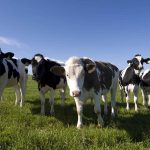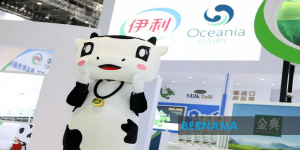
A new report advised New Zealand dairy, meat and seafood exporters to keep up with rapidly evolving agri-food sustainability policies in China to ensure future market success.
China’s policies to reduce food packaging and waste are those most likely to impact New Zealand producers in the near term, according to the report released on Monday.
“New Zealand exporters will need to develop products and packaging that keep up with China’s moves to minimize spoilage and waste,” said New Zealand China Council Chair John McKinnon.
China has been a late adopter of environmental policies in food production but is now moving at “China speed” to implement four policy priorities with implications for international trade partners: reducing the local environmental footprint of agriculture, mitigating the climate impacts of agriculture, reducing food packaging and reducing food waste, according to the report by the New Zealand China Council.
These policies reflect the Chinese government’s increasingly urgent environmental protection and climate change agenda, and will help to drive a fundamental transformation of China’s domestic protein market at the producer level, McKinnon said.
China’s top agri-food priority remains food security for its huge population. “But where sustainable production practices can support that goal, we can expect fast changes in Chinese protein production and consumer preferences in coming years,” he said.
New Zealand producers have traditionally positioned themselves well in the China market as “clean green” producers of high-quality protein, however, this will not be enough in the future, he said, adding that to maintain market share, New Zealand’s value proposition needs to be further refined to align with China’s increasing focus on sustainability.
New Zealand exporters are facing growing competition in China, McKinnon said, adding that the competition comes not only from other global producers but also from local Chinese companies that have improved in quality due to significant domestic investment.
The report also assesses the current and anticipated future potential of China’s alternative and novel proteins sector, including plant-based meat and dairy substitutes as well as products created through microbial fermentation and other emerging processes.





















